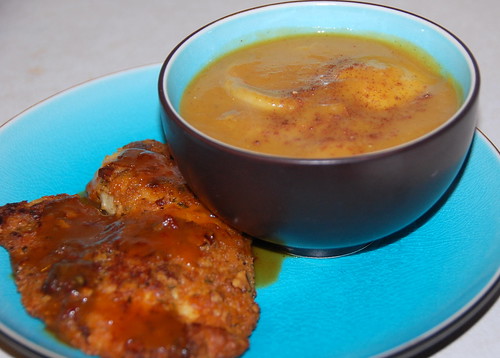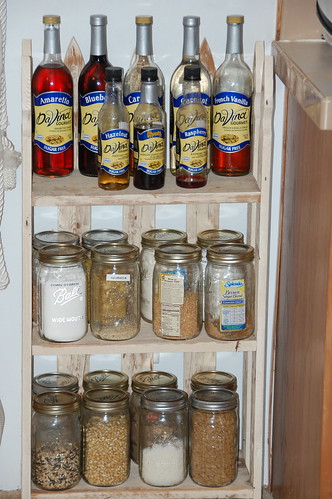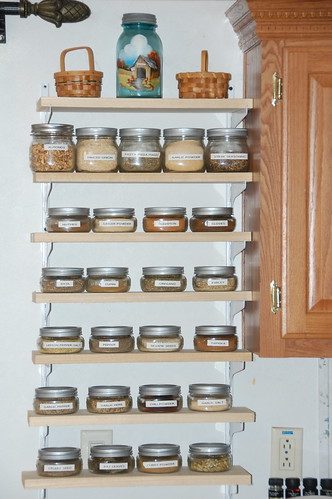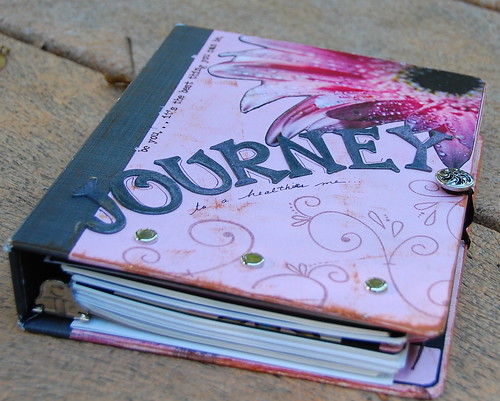Reactive hypoglycemia is becoming more and more commonly diagnosed after Roux-en-Y gastric bypass surgery. Doctors and research clinics are recognizing this trend and are studying the phenomonom. But if you research online, you'll find that the published information is going to discuss extreme cases of "severe hypoglycemia" in patients being
studied at the Mayo Clinic and elsewhere.
Most of us post-op folks don't have the "serious" kind of reactive hypoglycemia that requires removal of parts of our pancreas or study in a clinic. Most of us have a form of reactive hypoglycemia that is easily managed through diet changes and close monitoring of our condition, symptoms and habits. It seems that this type of reactive hypoglycemia is showing up around 12-24 months post-op in many people I've talked to on the forums. I was officially diagnosed with reactive hypoglycemia about 15 months after my RNY.
Reactive hypoglycemia is scary. It sucks big time and it's definitely no fun to have. Waking up in the middle of the night with a blood sugar crash is pretty horrifying. It's happened to me a couple times and I have since taken steps to make sure it doesn't happen again. But it takes some work to figure out how to control the crashes and some planning and discipline to make sure the plan works. You CAN live with it and it can be managaed through some diligent lifestyle adjustments and careful attention the detailed signals your body gives you.
This article is going to be a long one... so grab a cup of tea and prepare for an educational session.
What is Reactive Hypoglcemia?
Reactive hypoglycemia or Postprandial hypoglycemia (low blood glucose after meals), is a medical term describing recurrent episodes of symptomatic hypoglycemia occurring 2–4 hours after a high carbohydrate meal (or oral glucose load). Symptoms vary according to individuals' hydration level and sensitivity to the rate and/or magnitude of decline of their blood glucose concentration. Some of the food induced hypoglycemia symptoms include:
Mild Hypoglycemia
- Increased or sudden hunger
- Feeling shaky, dizzy or nervous
- Pounding heartbeat
- Drowsiness, feeling tired
- Sweating (cold and clammy)
- Numbness or tingling around the mouth
- Headache or stomachache
Moderate Hypoglycemia
- Any of the above mild symptoms, plus:
- Headache
- Personality change
- Irritability
- Confusion and/or difficulty concentrating
- Headache or stomachache
- Slurred or slow speech
- Poor coordination
Severe Hypoglycemia
- Any of the above mild or moderate symptoms, plus:
- Loss of consciousness
- Seizures and/or convulsions
- Death
Do I Have Reactive Hypoglycemia?
Many doctors will want to do a "Glucose Tolerance Test" on you to find out if you officially have reactive hypoglycemia or not. This is a very bad idea! It has been determined by the science people that a glucose tolerance test on post-gastric bypass patients will not give an accurate test result. Even for those who don't experience dumping syndrome (or who have a high threshold for sugar before dumping is induced) the glucose tolerance test is too excessive an amount of sugar for RNY folks. The test gives you an 8oz glass of pure glucose to drink before the test and contains about 70-100g of sugar. Yikes!
Landsberger, et al., suggested using modified glucose testing. They recommend obtaining a fasting blood glucose level and a two-hour postprandial level after consuming the most carbohydrate-loaded breakfast the patient can tolerate.
source
So if your symptoms match all or some of those listed above and you suspect that you have reactive hypoglycemia, definitely see your doctor. And discuss alternative methods for testing your condition for an official diagnosis.
Marathon Blood Testing Week
When I suspected I had reactive hypoglycemia I did a whole week of marathon blood testing so I could learn what my body was doing with various types of food or meals. Here's the deal.
You need to understand what's going on with your body. You need to learn what foods or activities trigger a crash and what makes you feel good and sustains your blood sugars.
It's different for everyone so you'll have to do the work to figure it out for yourself.
Here's how the blood testing marathon went for me...
My brother has had Type I diabetes since he was 10 years old. So I borrowed one of his blood glucose monitors and bought a container of test stripes for it. I later bought my own glucose monitor. When you're shopping for one, look at the price of test strips and supplies, not the monitor itself. Most insurance companies won't cover these supplies for hypoglycemia, so this will likely be an out-of-pocket cost, so shop wisely. I bought the
ReliOn brand from Walmart.
I tested my blood sugar several times a day. An hour before a meal, a few minutes after eating, an hour afterward, two hours after, etc. Then after seeing what my blood sugar did with good, healthy, balanced meals.... I did a bit of naughty experimenting. What would happen to my blood sugar if I ate chocolate? ice cream? pancakes? pasta or crackers? What happens after coffee? milk? fruit juice? How does the number change over time.... 5 minutes, 20 minutes, 60 minutes, 90 minutes after eating.
Guess what I found out about chocolate? Starting from a normal blood sugar reading of about 100, my glucose level will spike to about 215 within 20 minutes of eating some chocolate (about half a Hershey's bar). Wow! And I'm a non-dumper, remember... so I was never even aware that my glucose spiked that much, I felt no symptoms of a high blood sugar count or dumping at all. But within 90 minutes of eating that chocolate my blood sugar crashes down to a level of 50. Same thing happens with ice cream, except the crash comes faster.
I also tested whenever I
FELT different which helped me recognize what my signals were for a low blood sugar count. For me it's an overheated feeling, lightheadedness, shakiness -- those are my primary signs of low sugar. But I can also get the signal of a strange feeling on my tongue -- like my tongue is fuzzy or swollen or something or my lips tingle. I also can get a super cold nose while the rest of my body is overheating. Each person is different, so you need to test based on what you think is an
off feeling for you and see if that "feeling" is really connected to blood sugar or if it's something else (like mere head hunger or a craving or whatever).
Make notes of your discoveries. Keep a food log and keep track of your blood glucose readings at all the various times before and after meals. Also track your symptoms (or off-feelings) and what your glucose reading is for those symptoms. Over time you'll be able to spot trends and understand how your body is working a bit better.
I found that if I eat a balanced meal of protein, complex carbs and good fats that my blood sugar remained stable for hours and hours. I could go 6 hours without eating and never have a low blood sugar count if I eat a healthy meal. It was only after a meal or snack that was based in simple carbs and not enough protein that I saw my crashes. And sometimes with meals out of balance with too much protein and not enough carb or fat to balance it out. I also found that coffee is a trigger for me and if I'm going to drink my morning coffee (which I still do), then I need to make sure I have a snack or meal planned within an hour after drinking it.
I also experimented with which foods would raise my blood sugar out of a crash and keep it stable without causing another crash in an hour. So often you hear of diabetics eating candy to bring their blood sugar up quickly -- that doesn't work well in our situation, that will just cause a new cycle of crashes and spikes. We need a BALANCE of nutrients, not sugar! For me it's peanut butter crackers - or - a handful of grapes and a slice of deli turkey or cheese. Basically
a bit of simple carbs to bring the crash up quickly, then a balance of protein and fat to keep the numbers up.
So you'll need to play around with foods and figure out what YOUR triggers are, and what foods work best to bring you back from a crash. You'll also need to figure out which foods should be with you at all times (I carry a granola bar in my purse for emergencies and have an extra stash in the glovebox of my car).
It's a process and it takes patience and experimenting -- and you'll go through a whole jar of test strips. But it's worth the effort and you'll learn to recognize a low blood sugar count well before it becomes an emergency. I can now catch a dropping count when I'm in the 60's or low 70's. It's rare for me to hit the 40's or 50's anymore.
Reactive Hypoglycemia IS Manageable!
Make sure you are eating according to the RNY Laws - protein first, moderate complex carbs and healthy fats. Figure out an eating schedule and stick to it. You'll want to make sure you have a planned meal or snack every 3 to 4 hours. You'll also want to keep a food log including the times you eat and also keep track of any blood sugar highs or lows on that same log so you can spot any patterns that might develop. Pay attention to what your body is telling you and adjust your new schedule accordingly.
~Pam
















